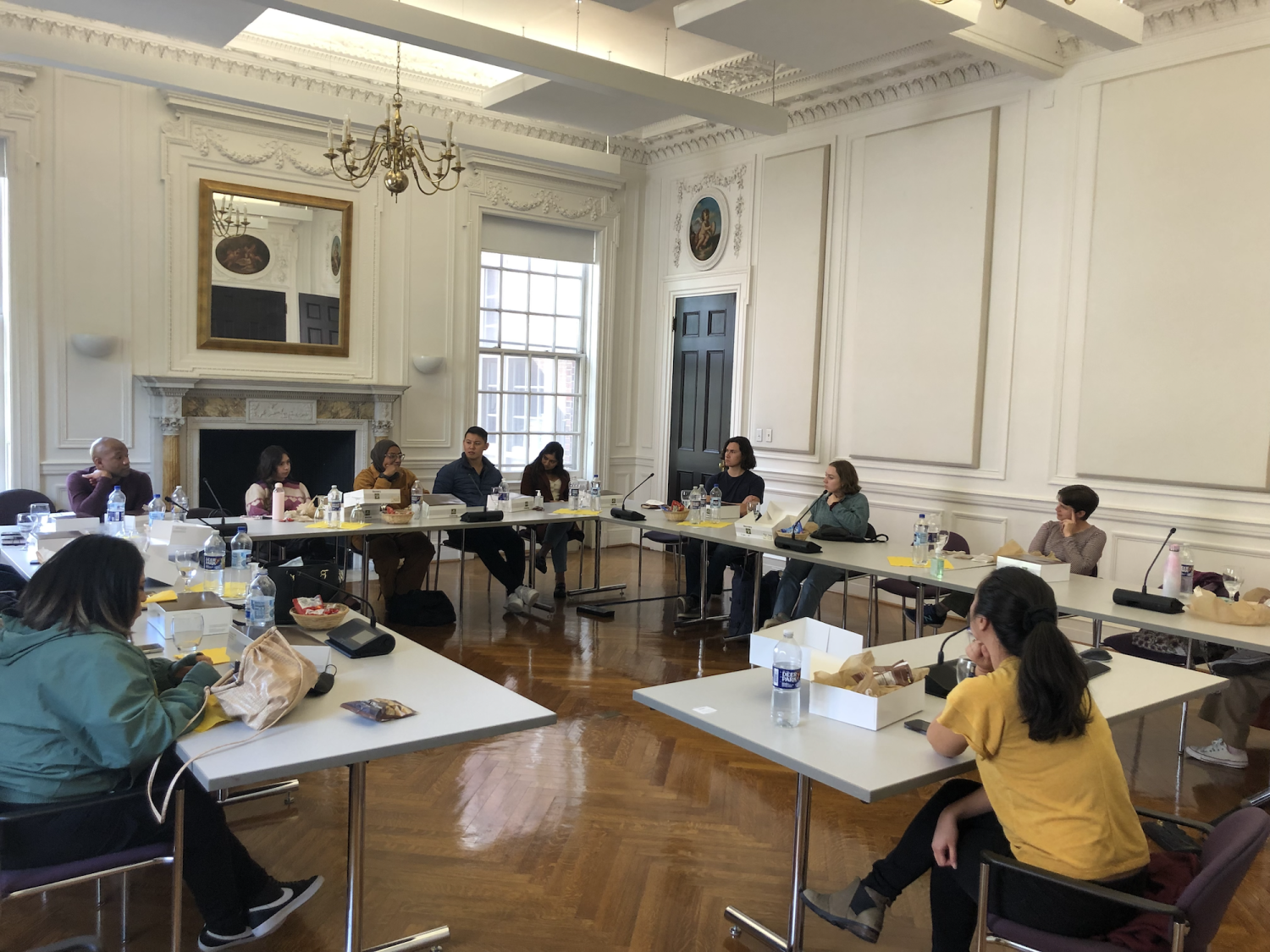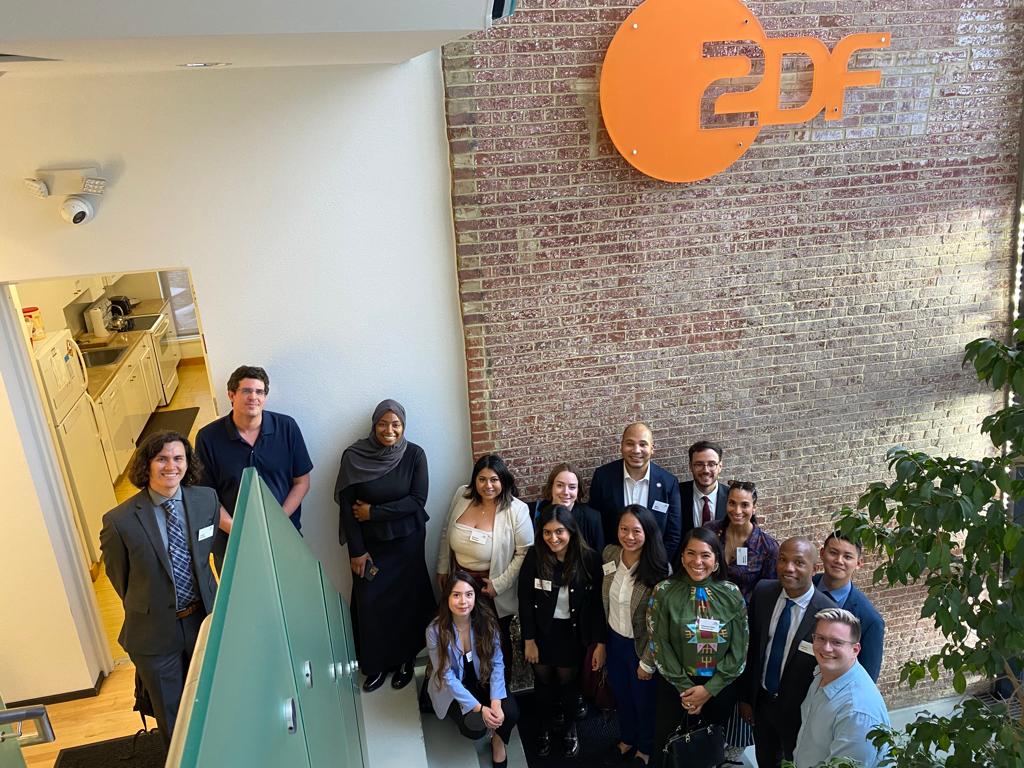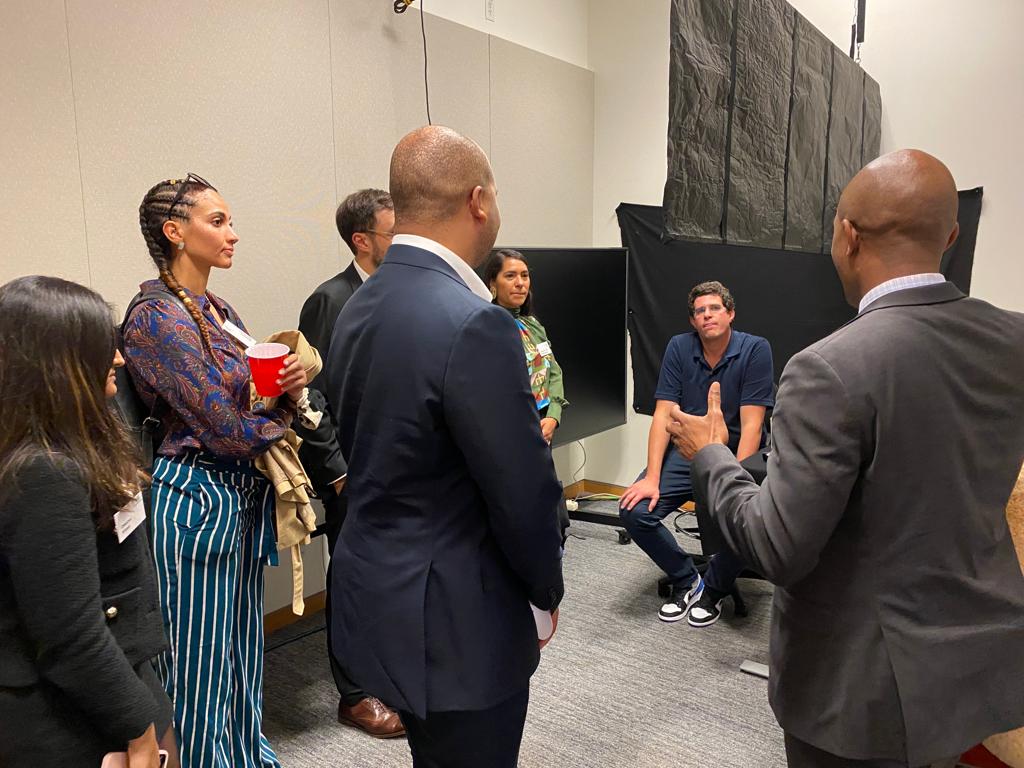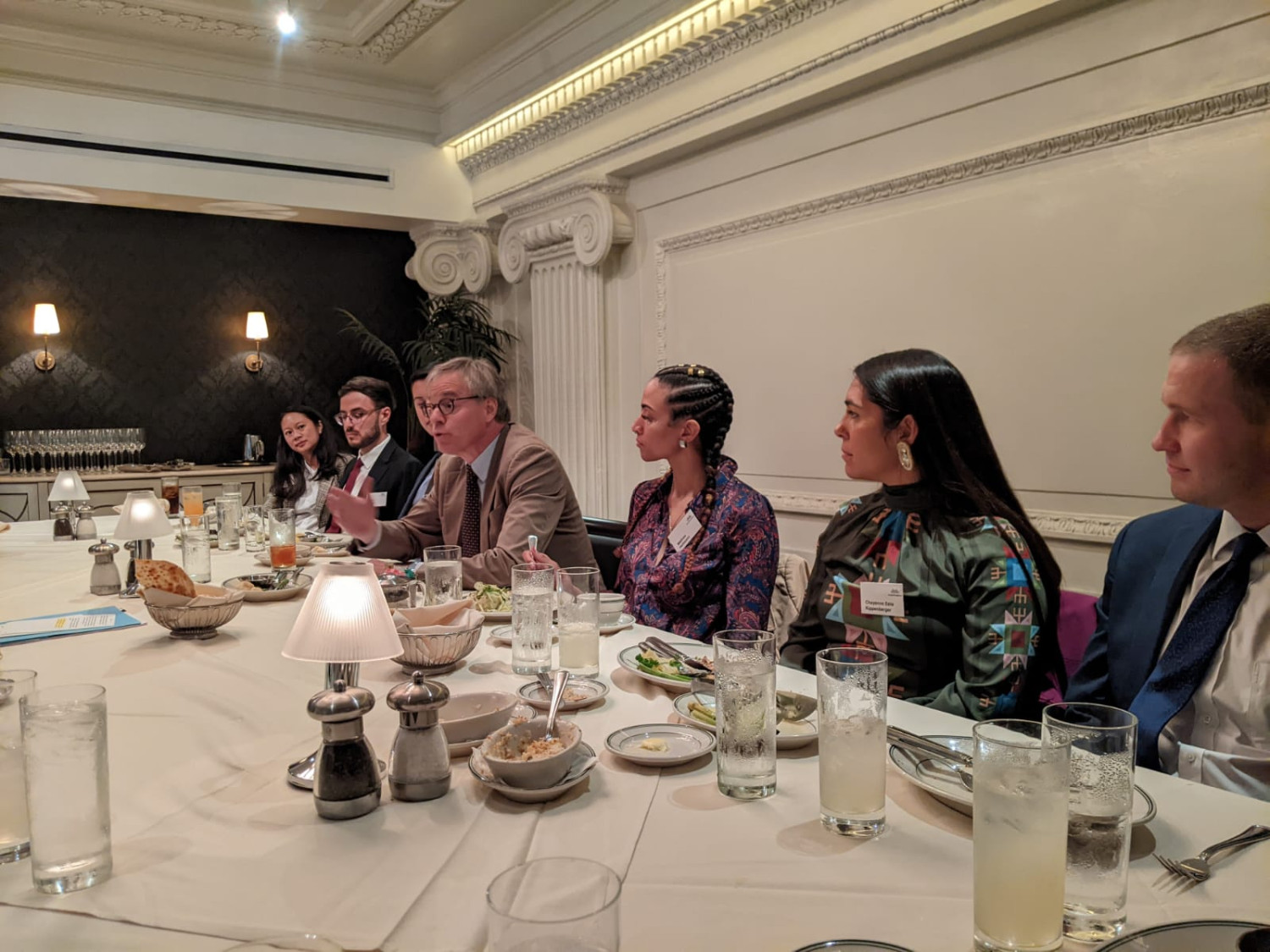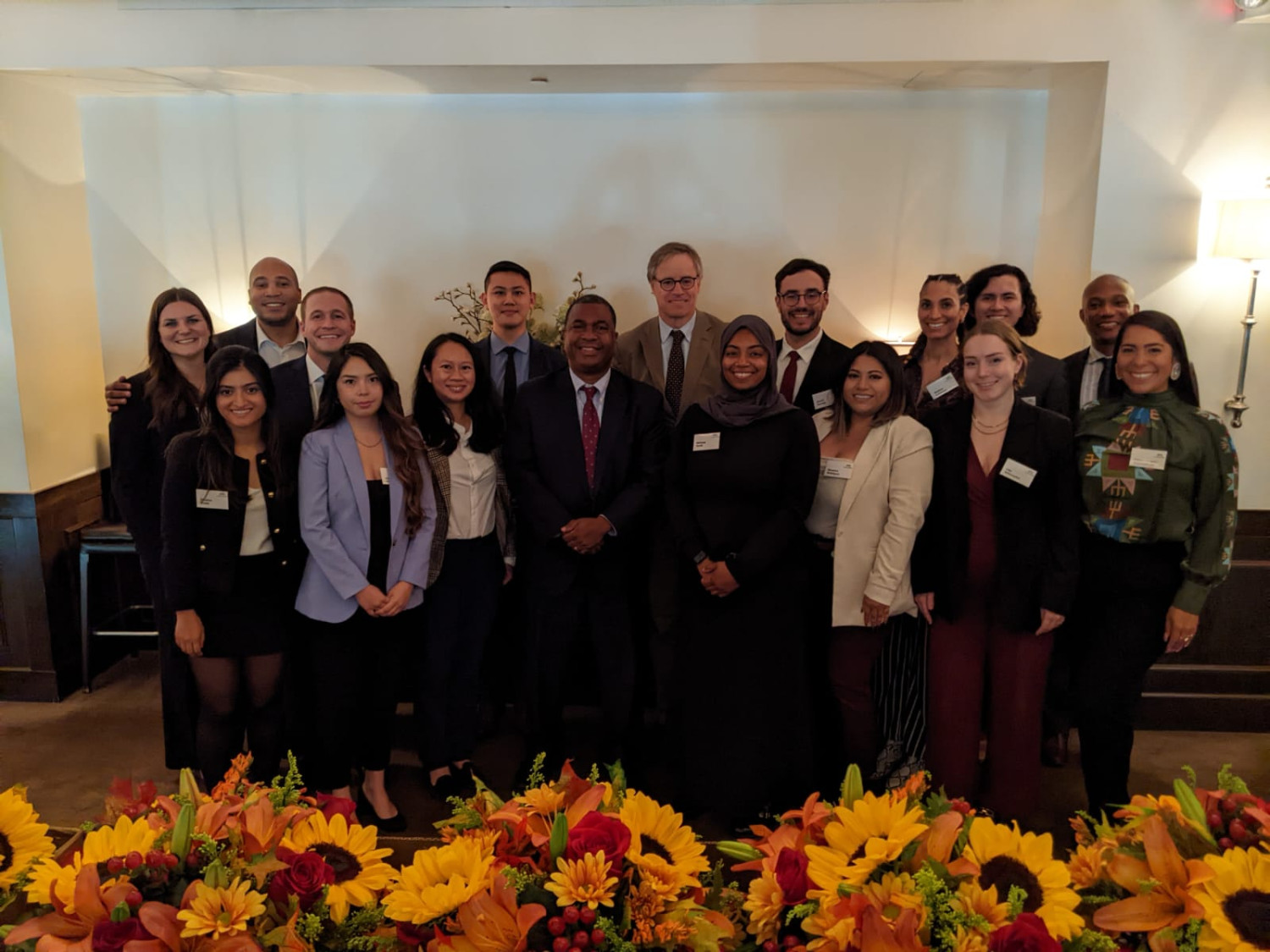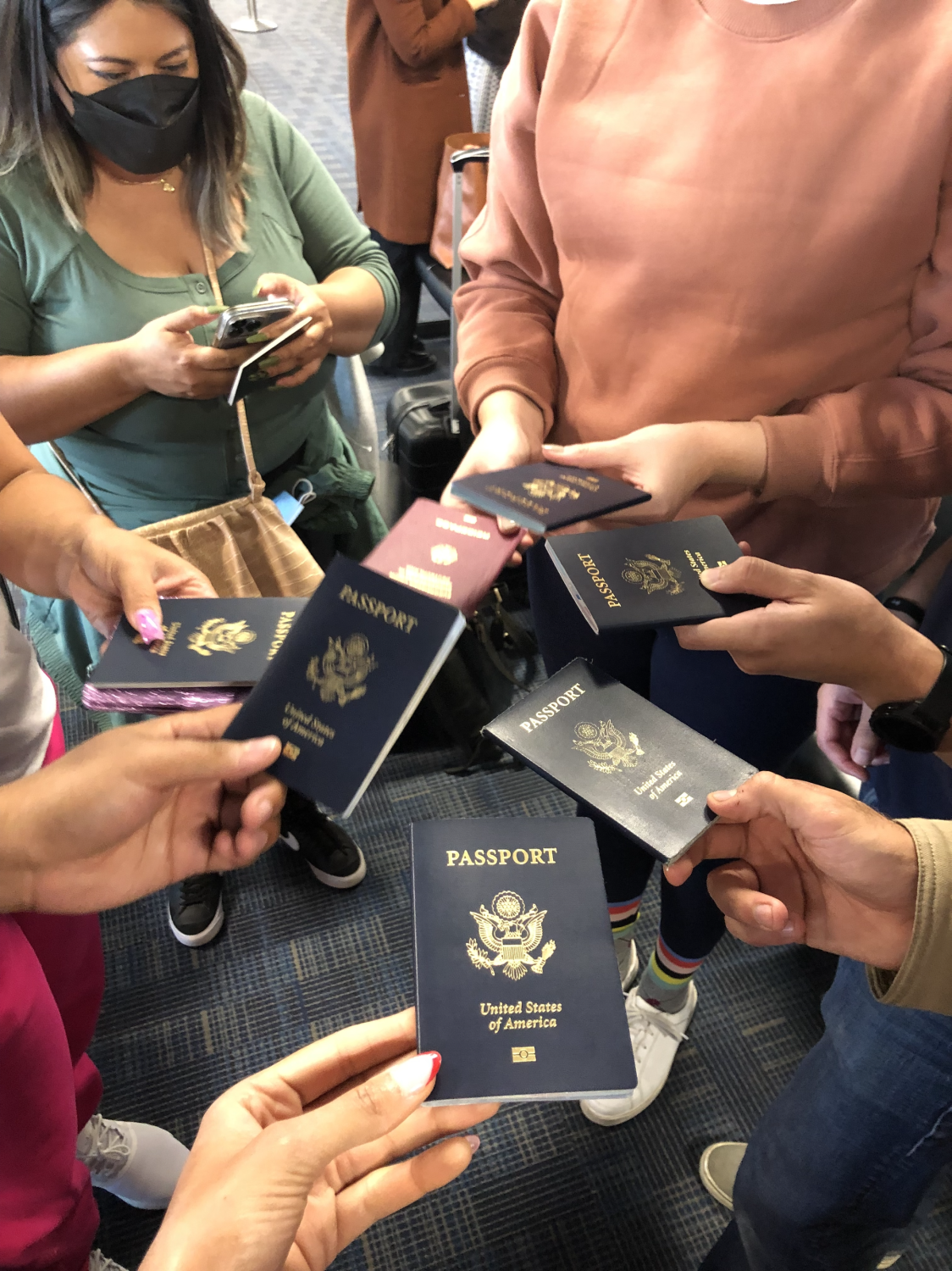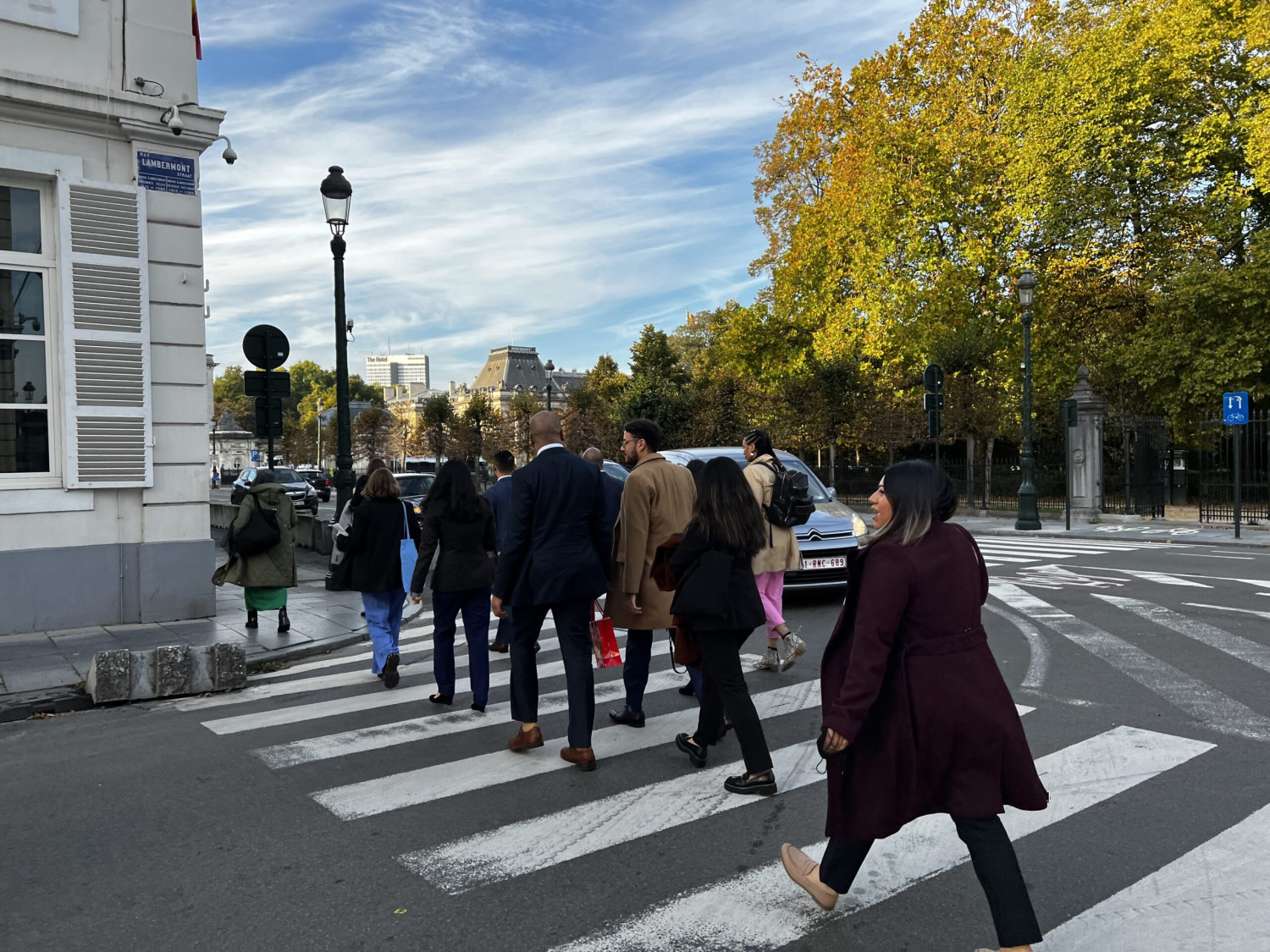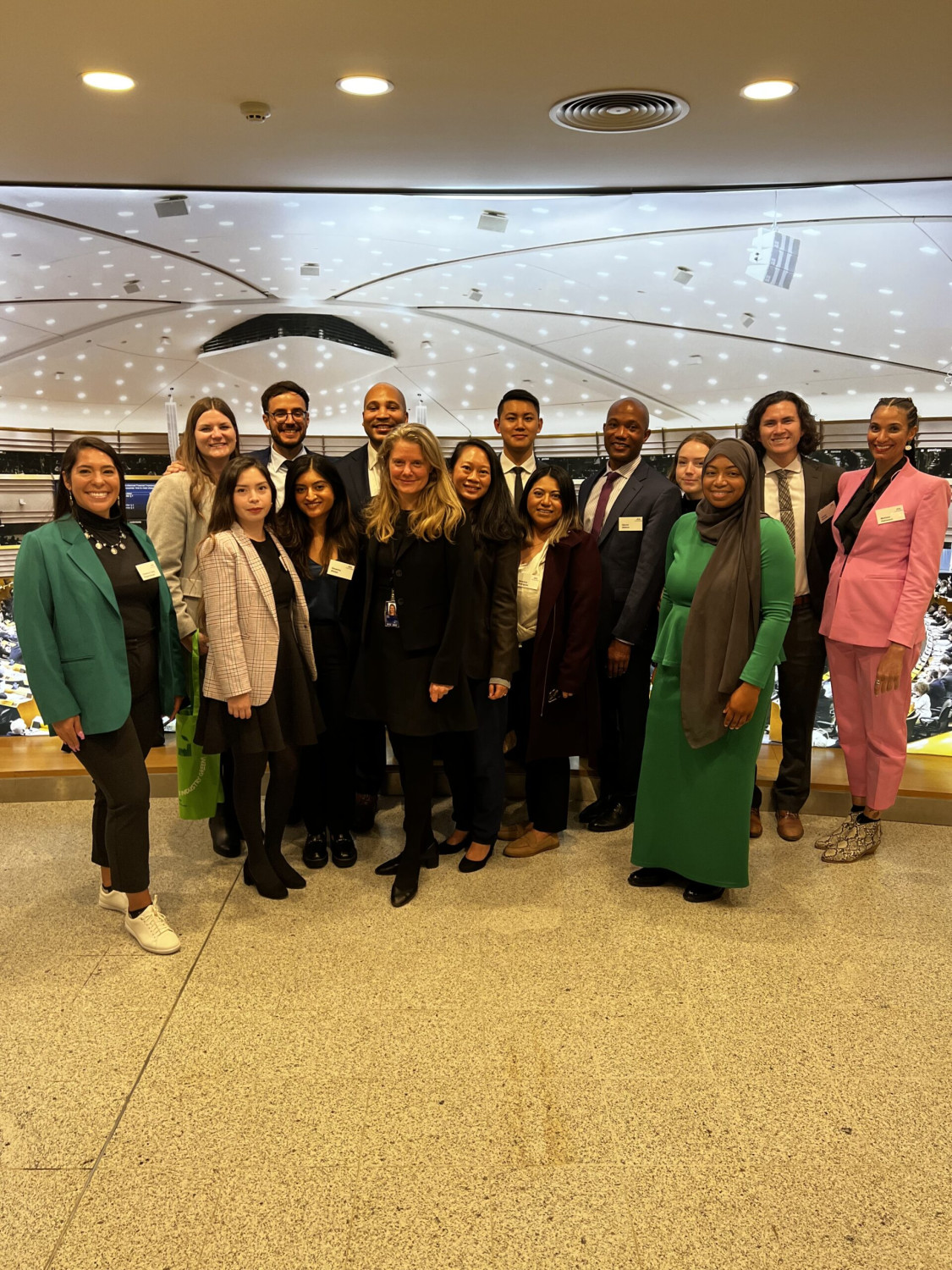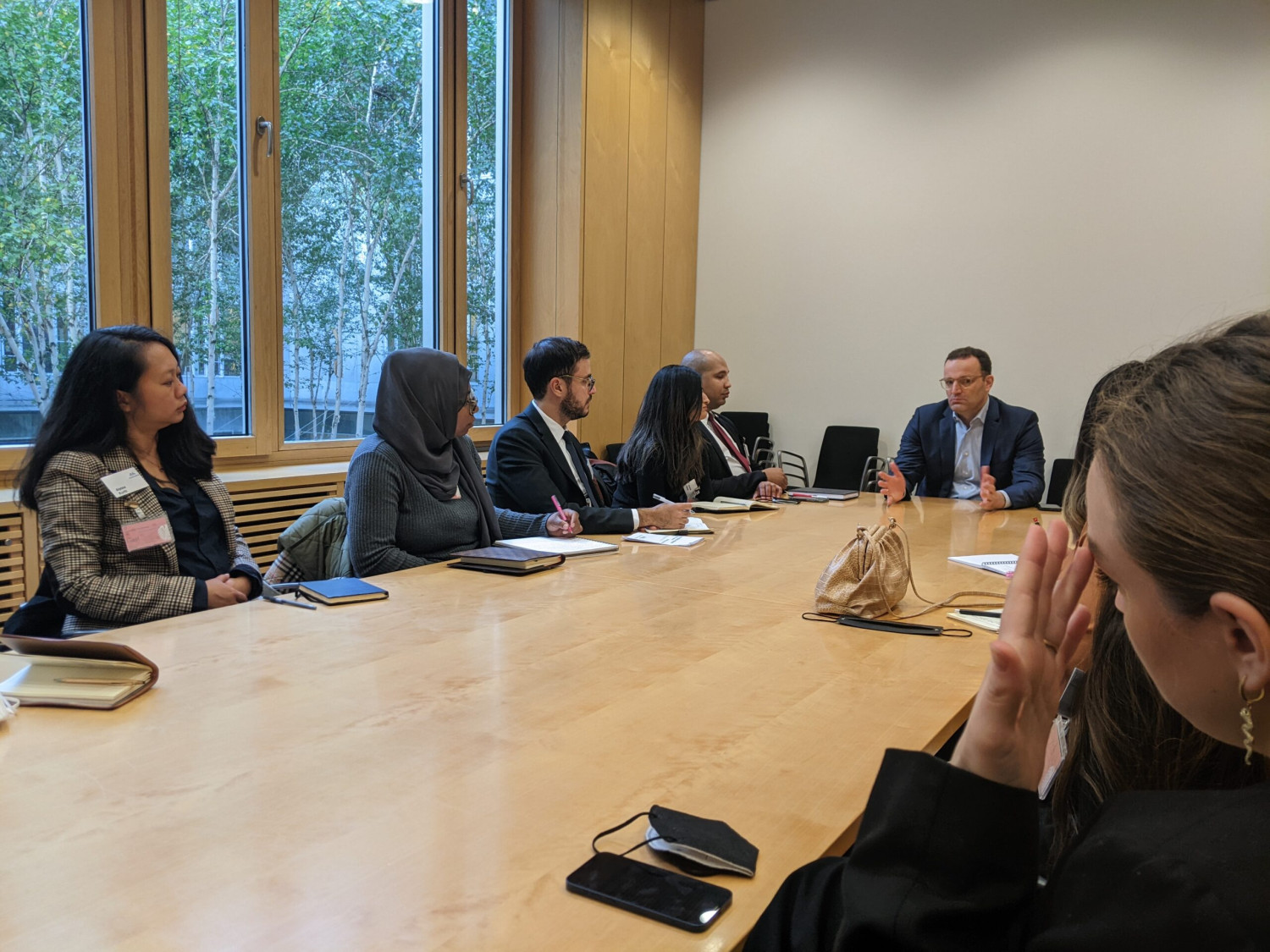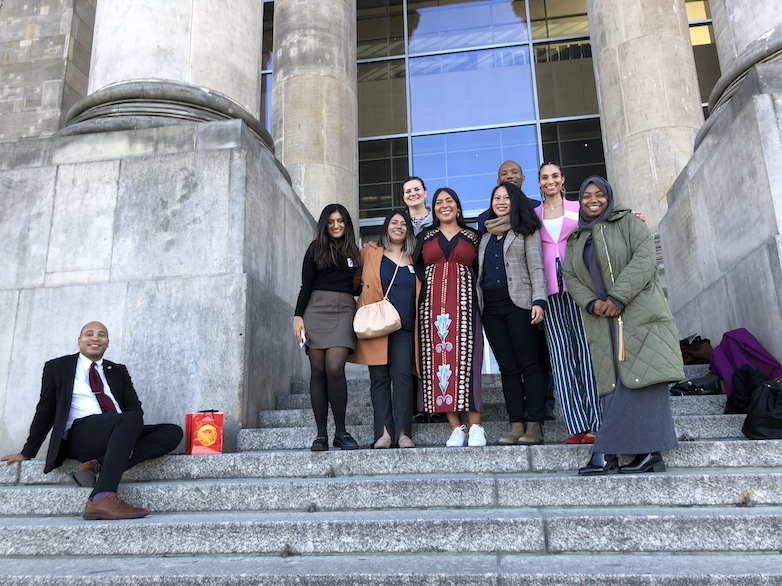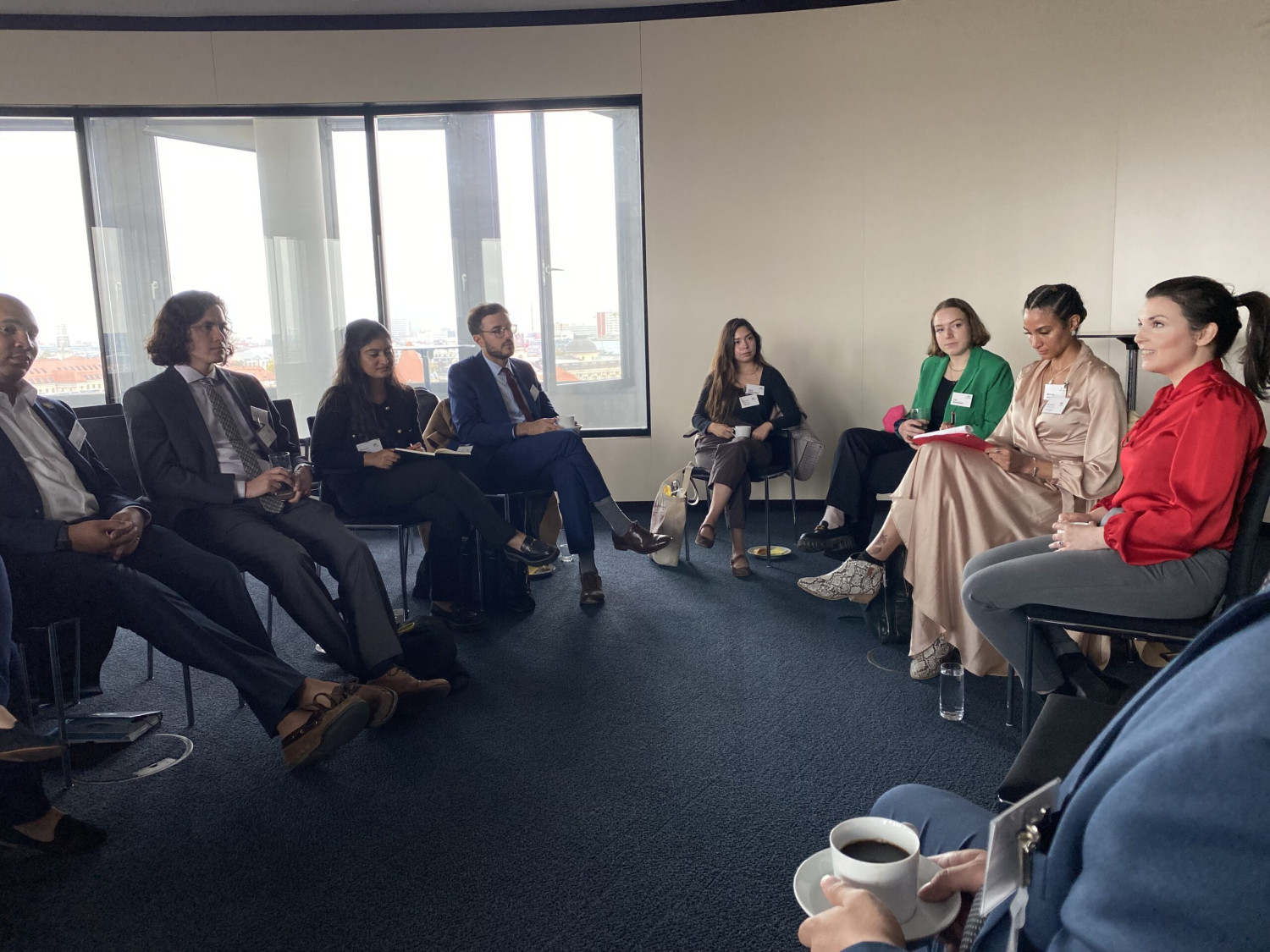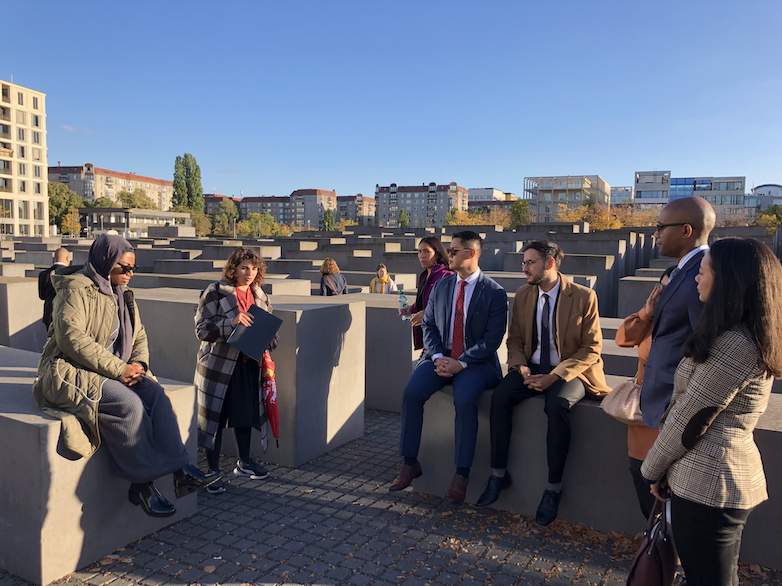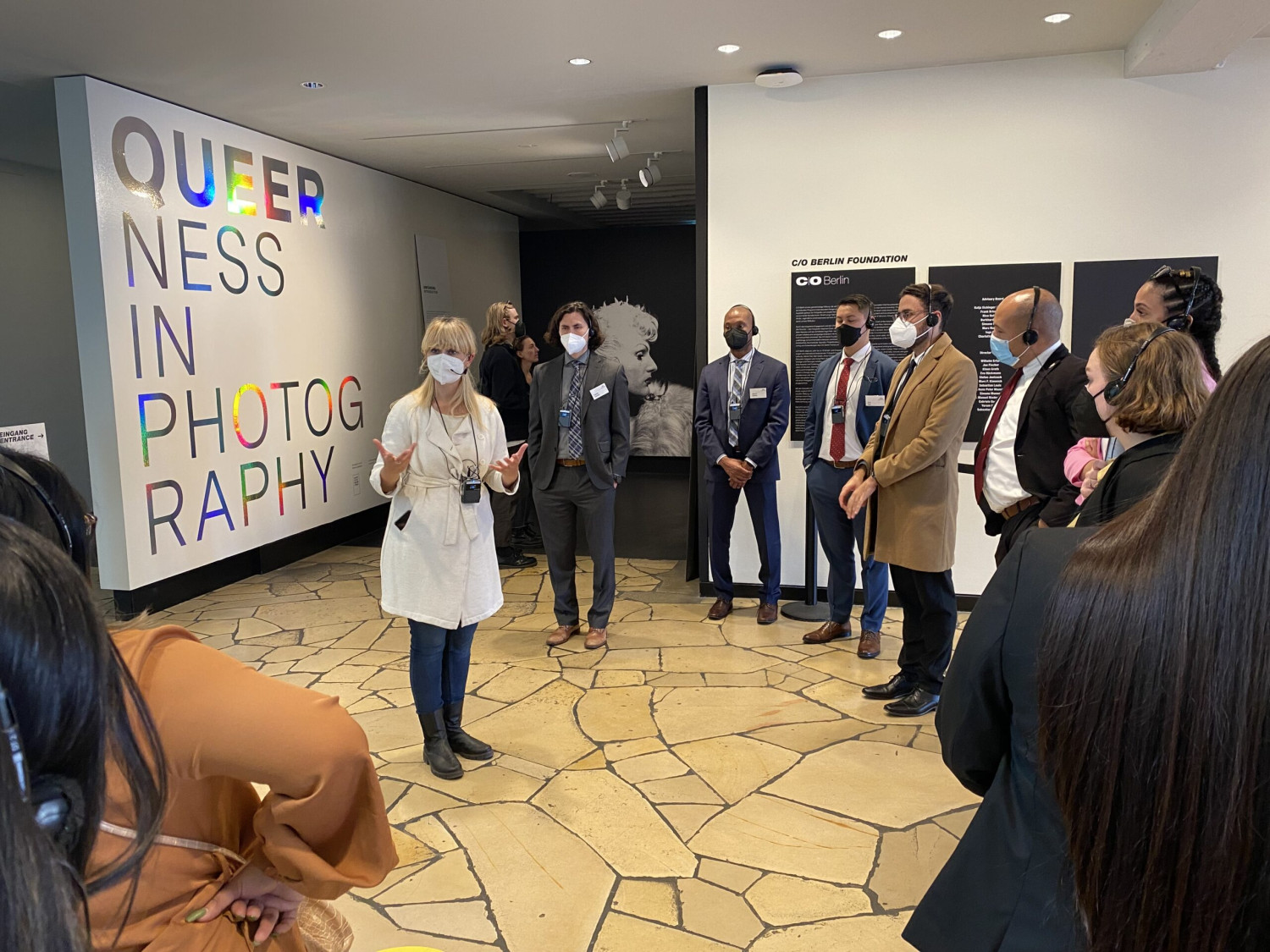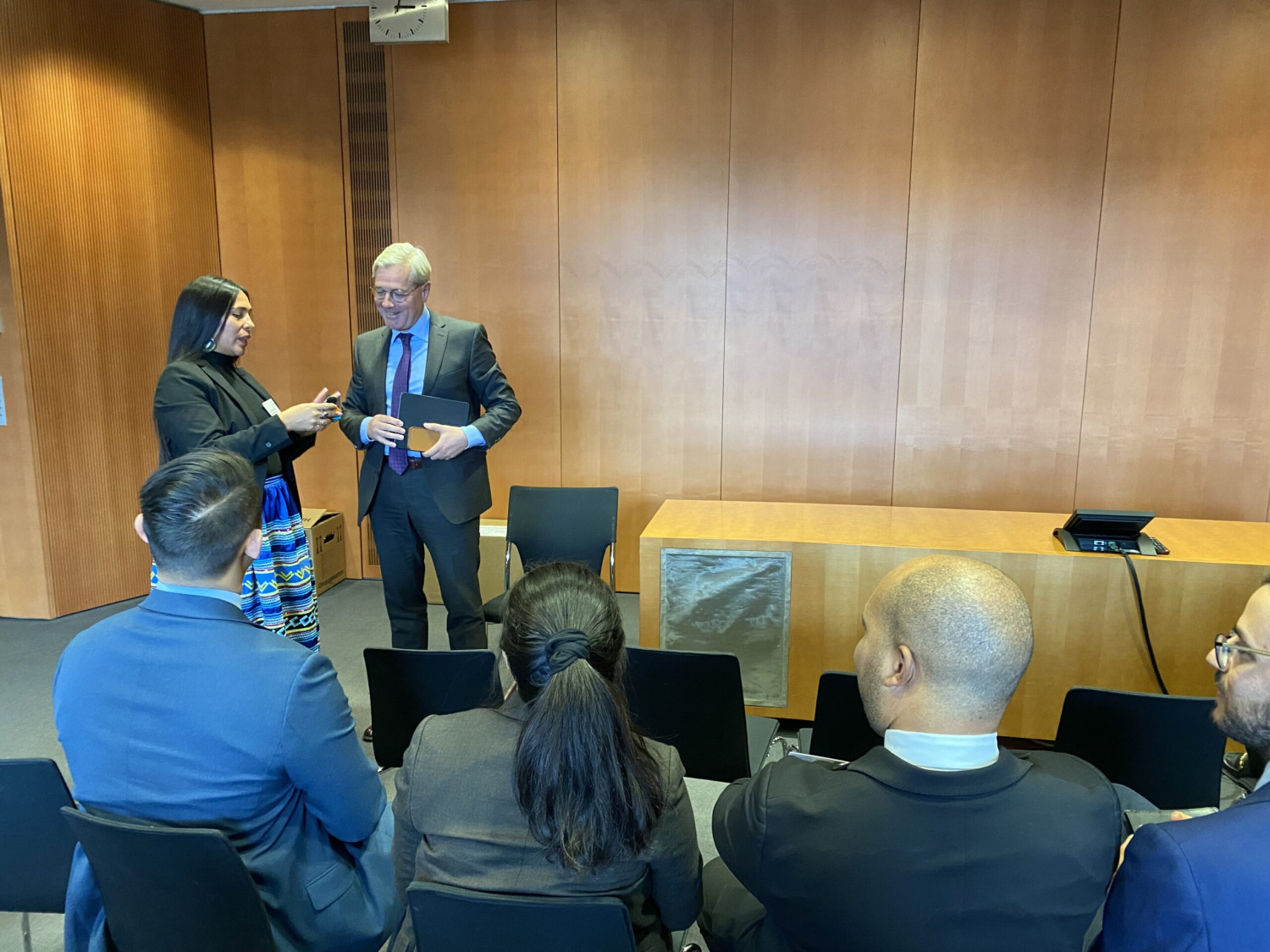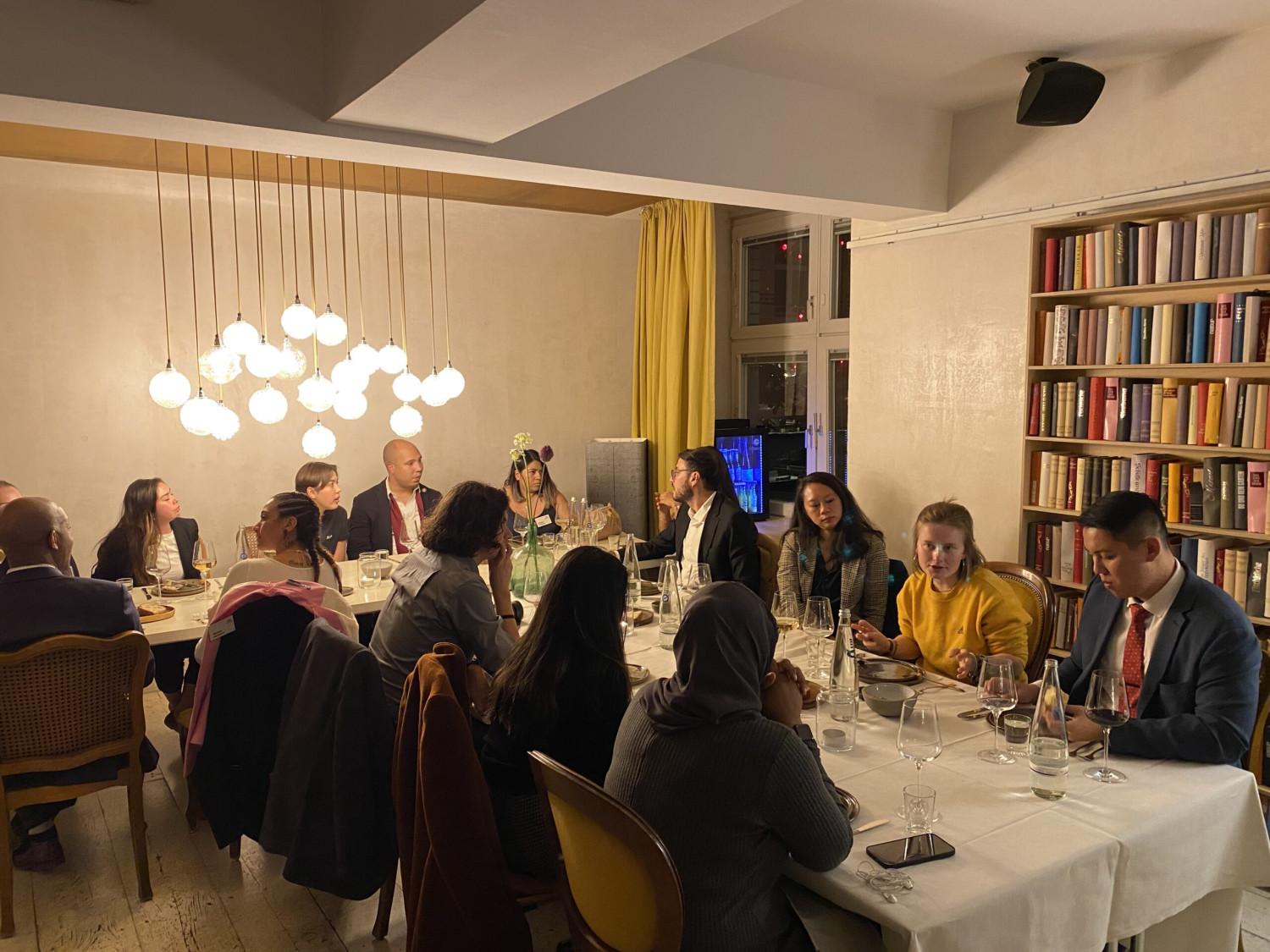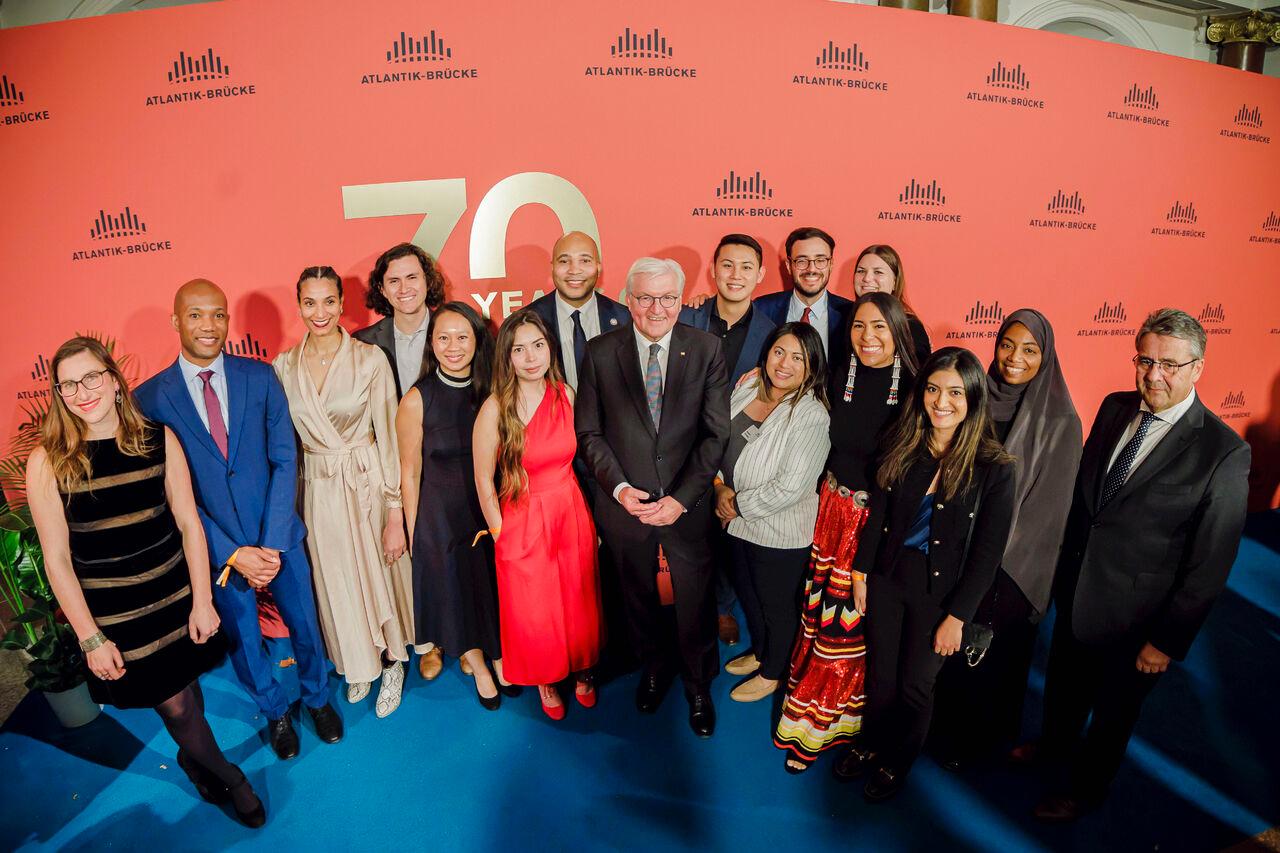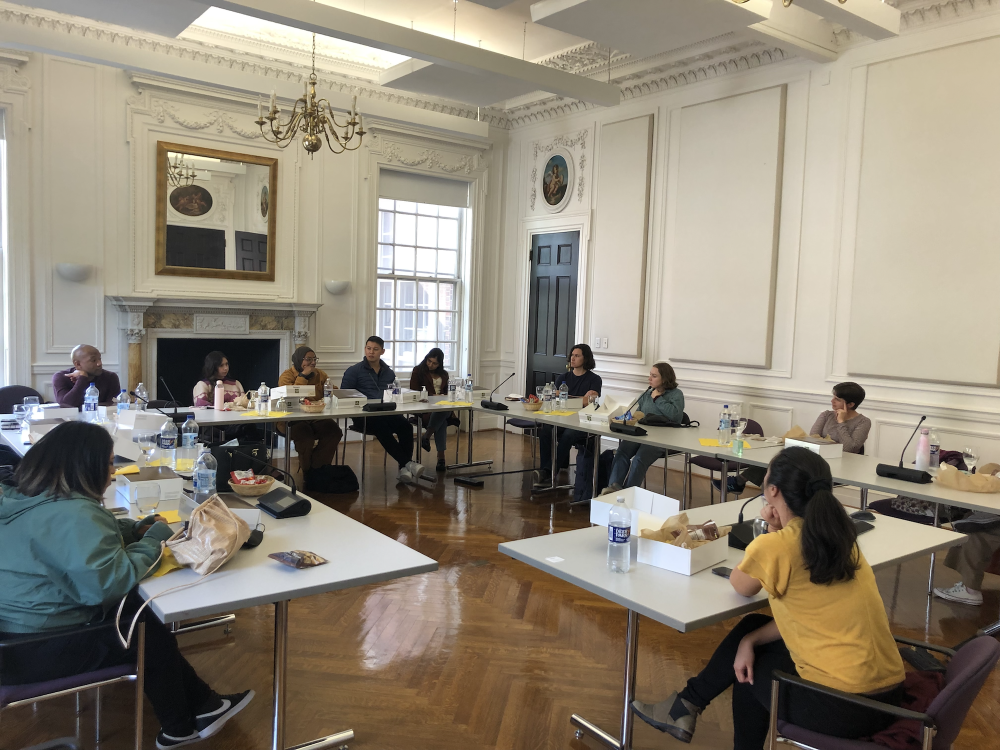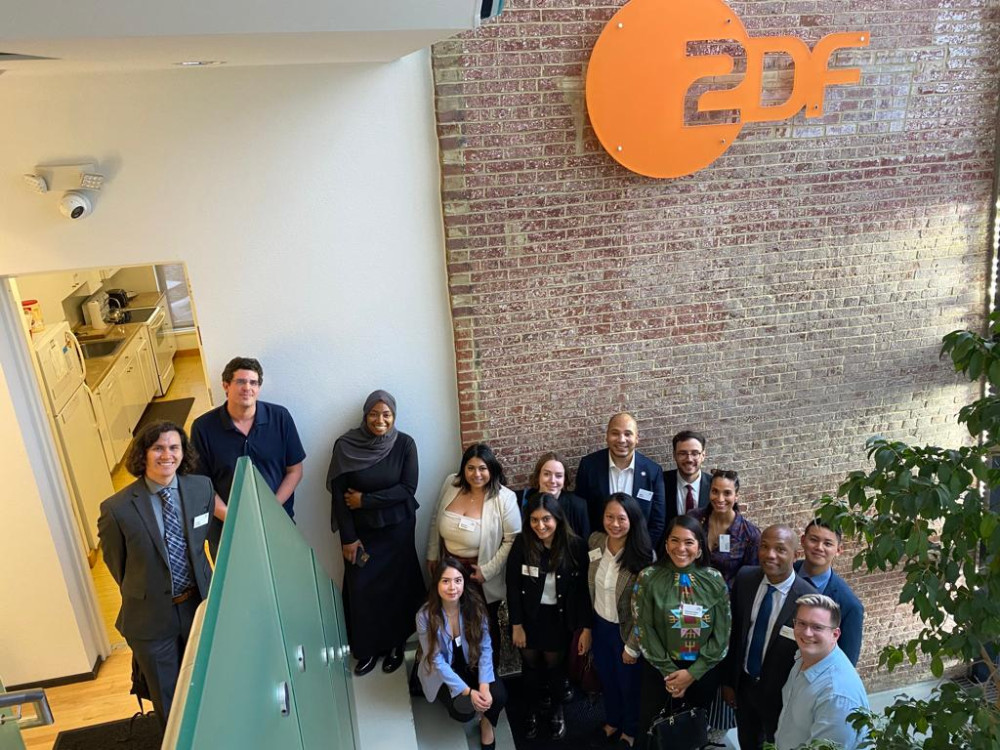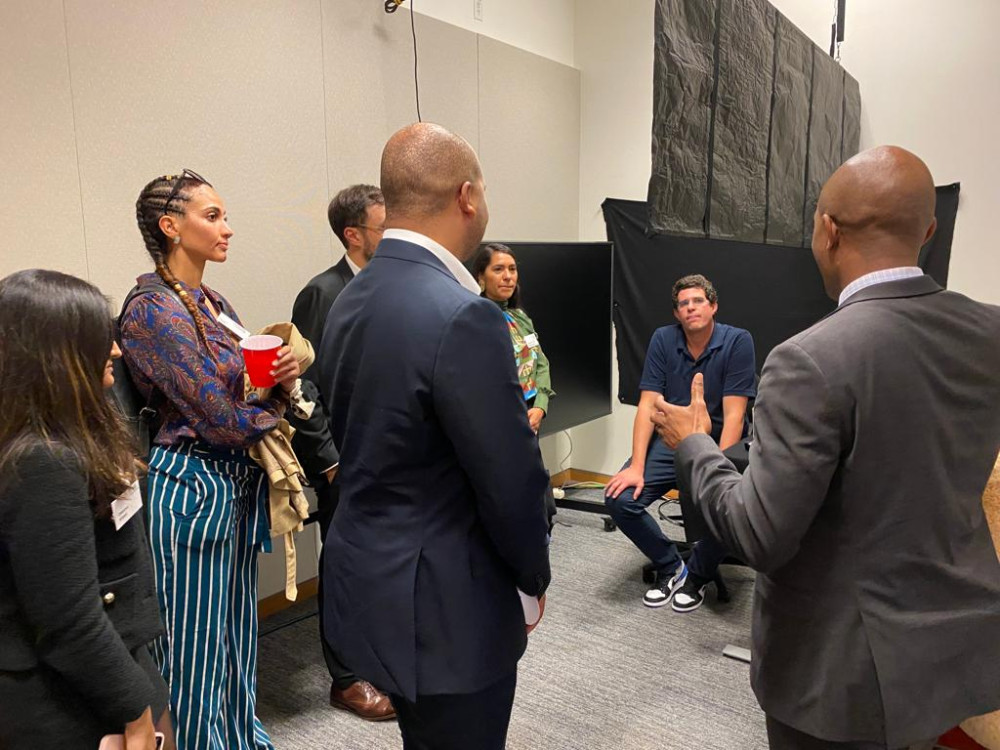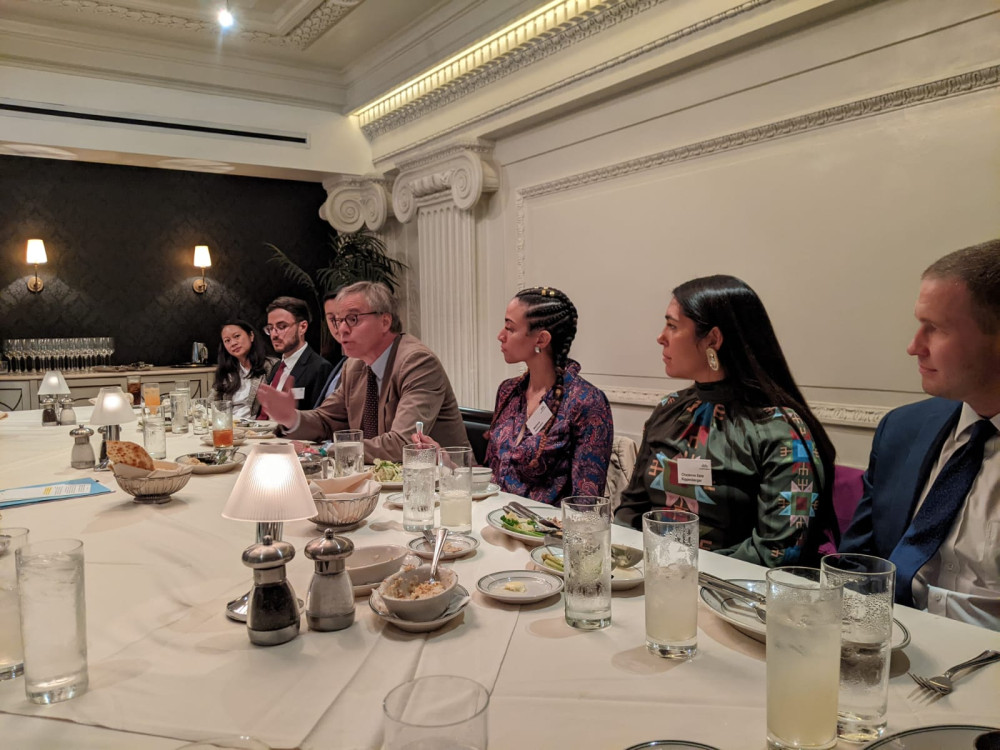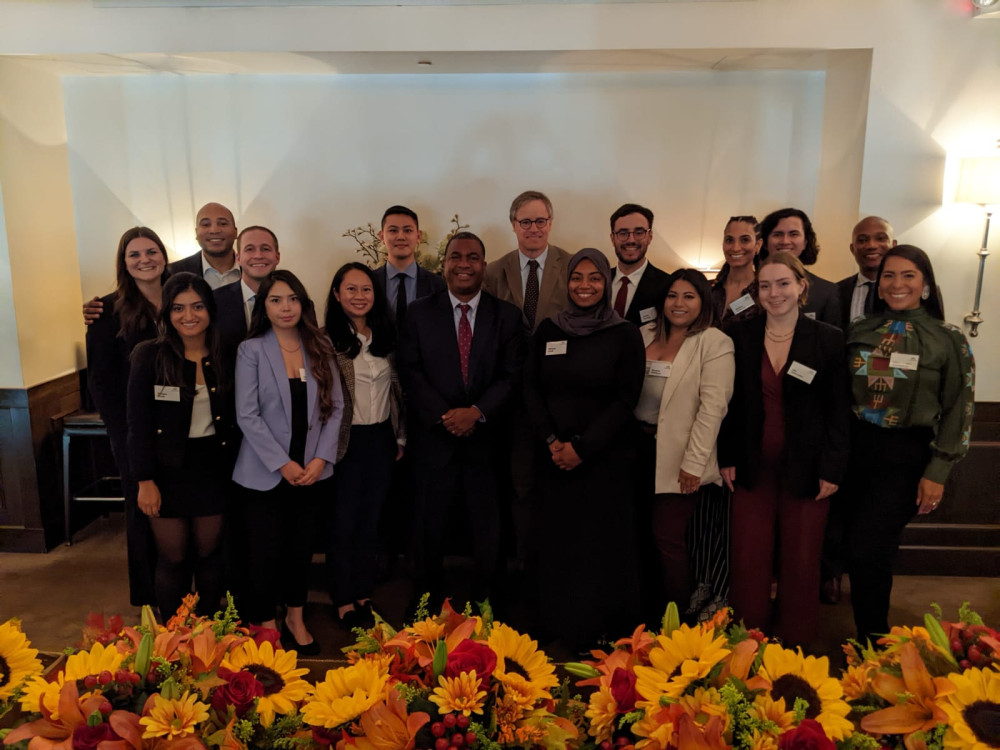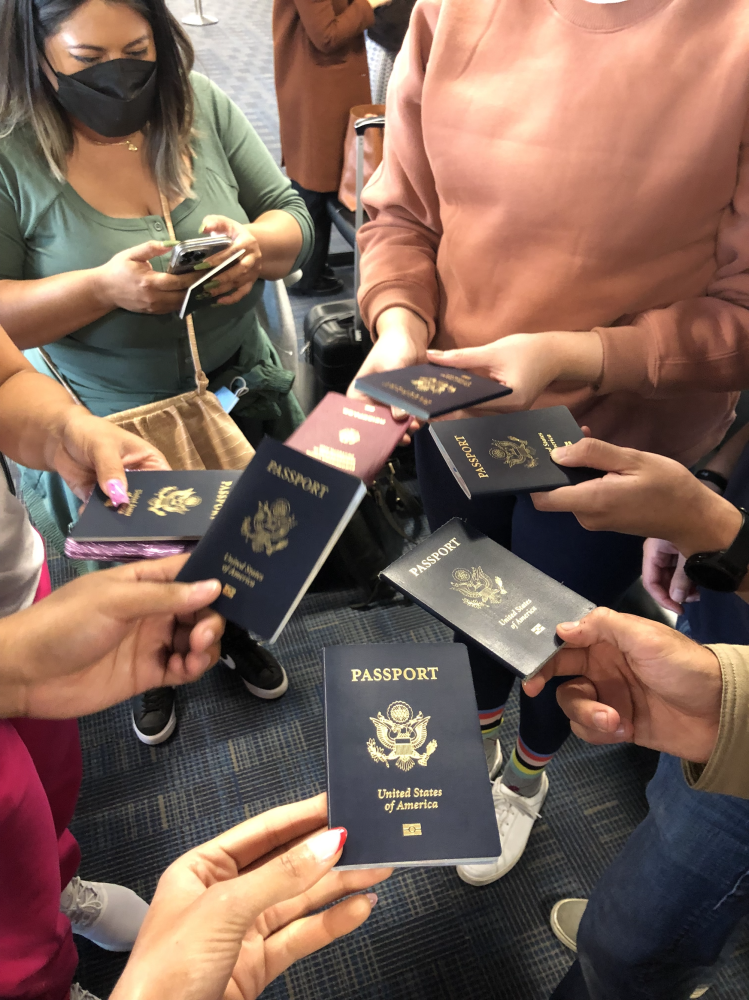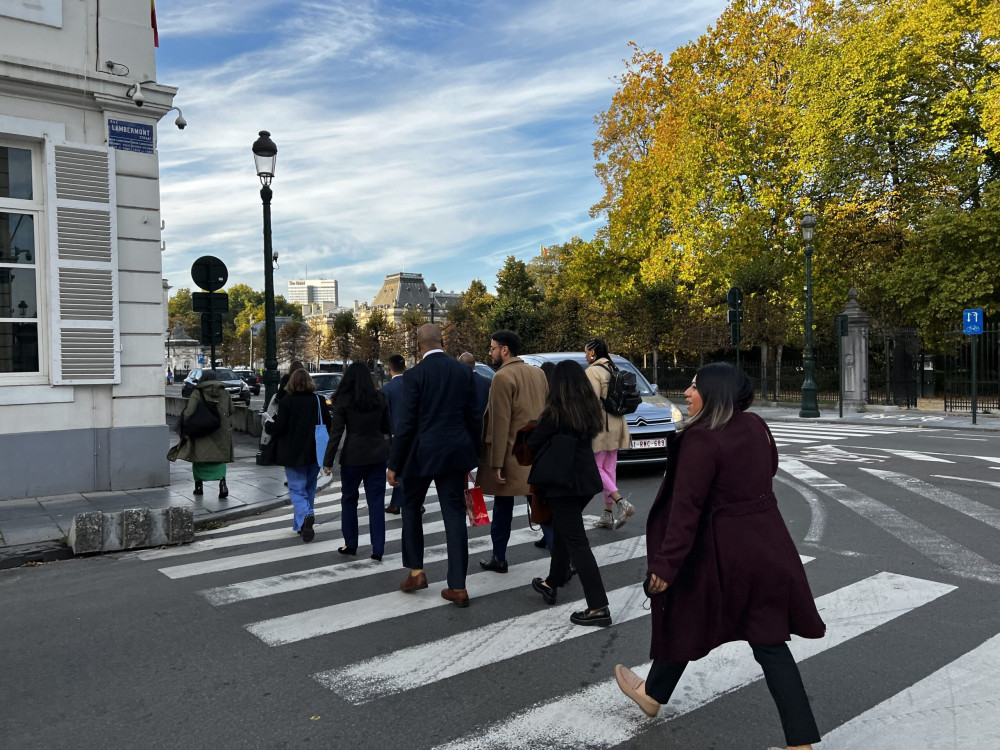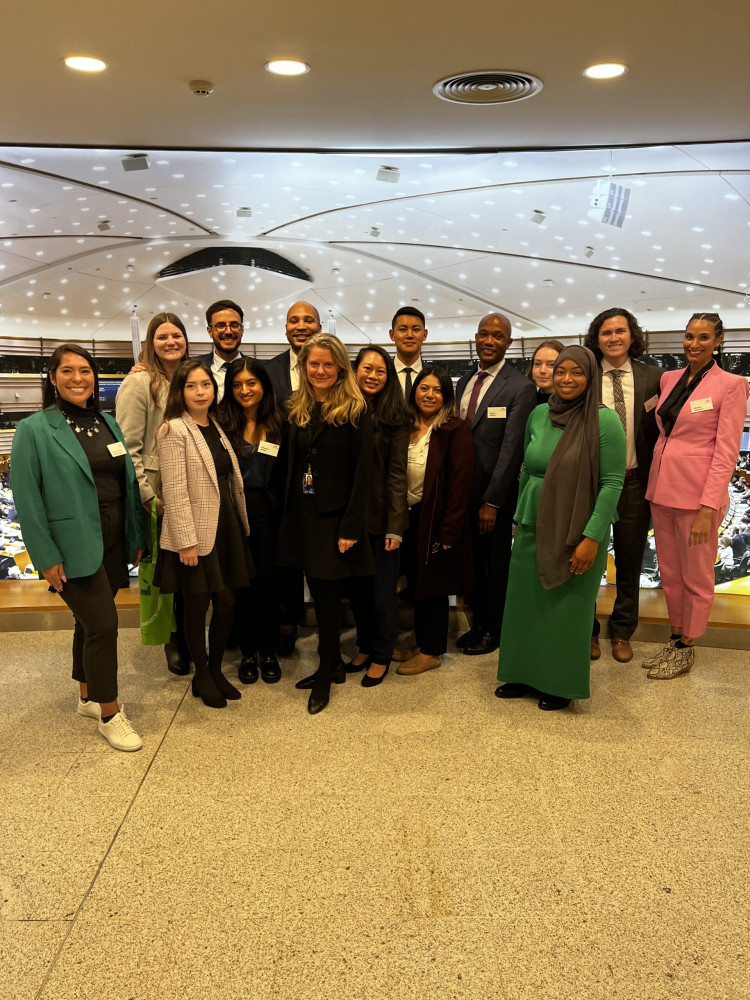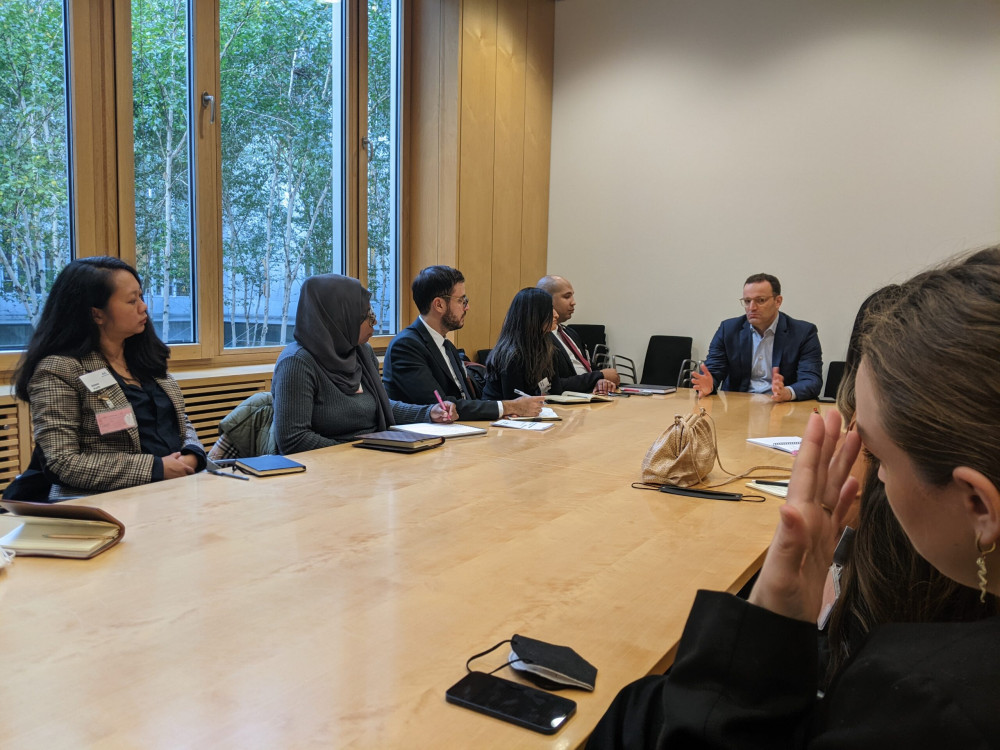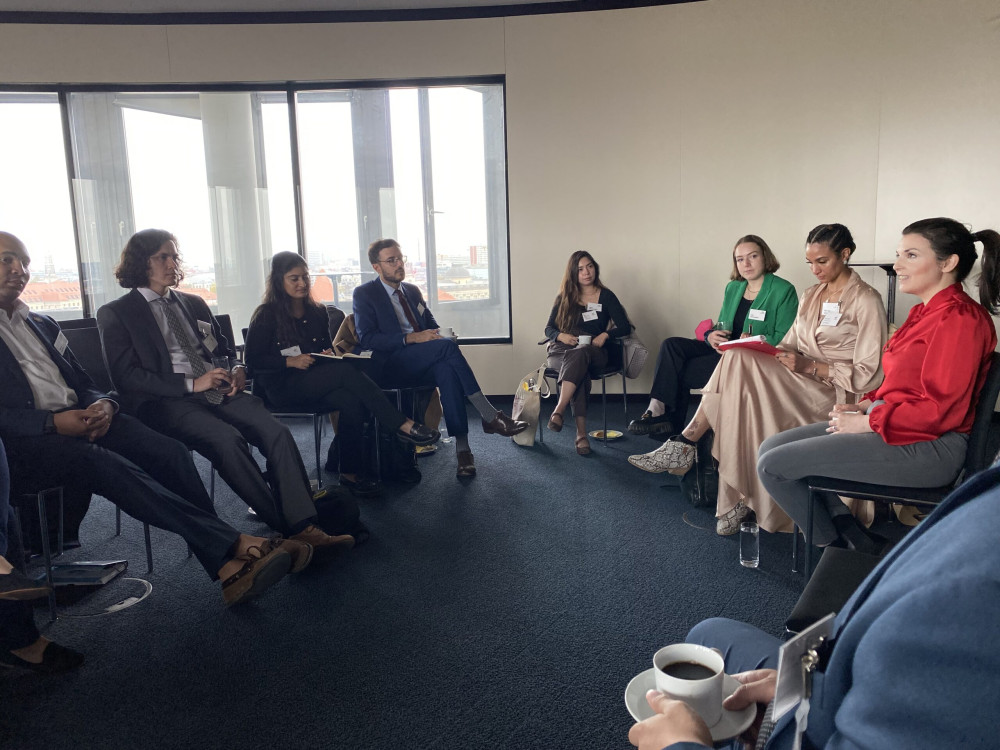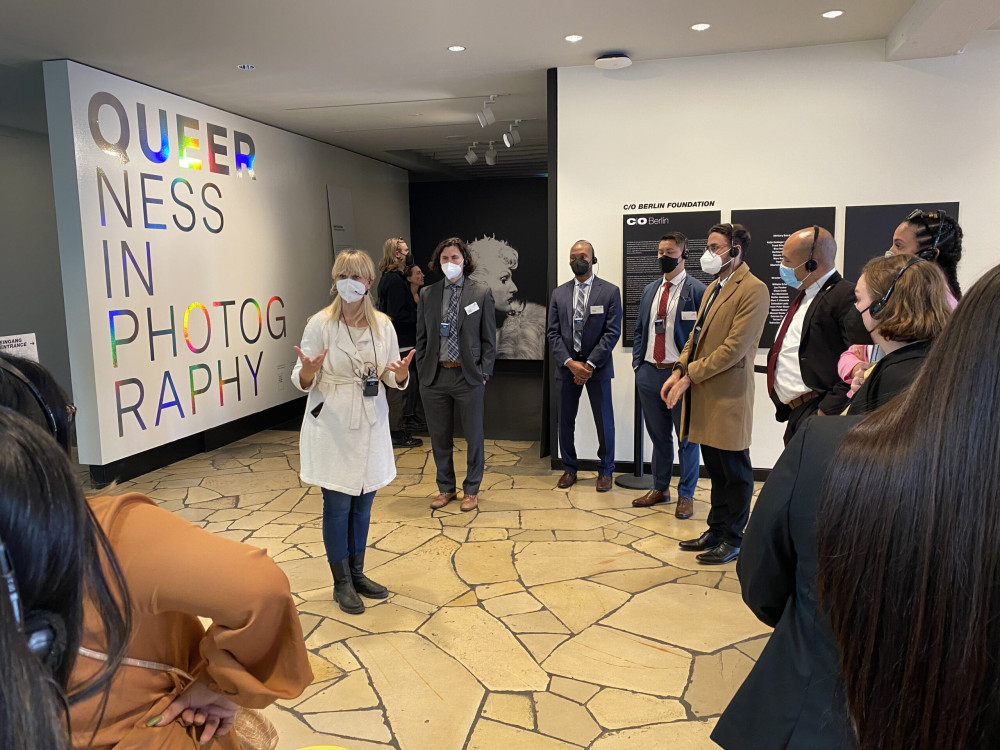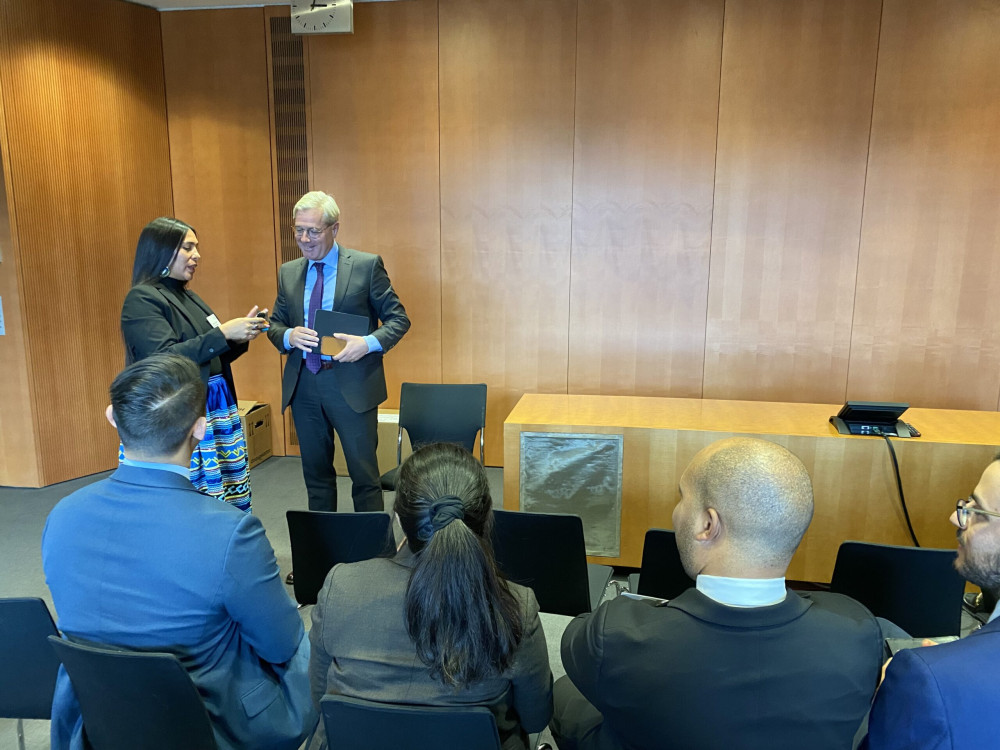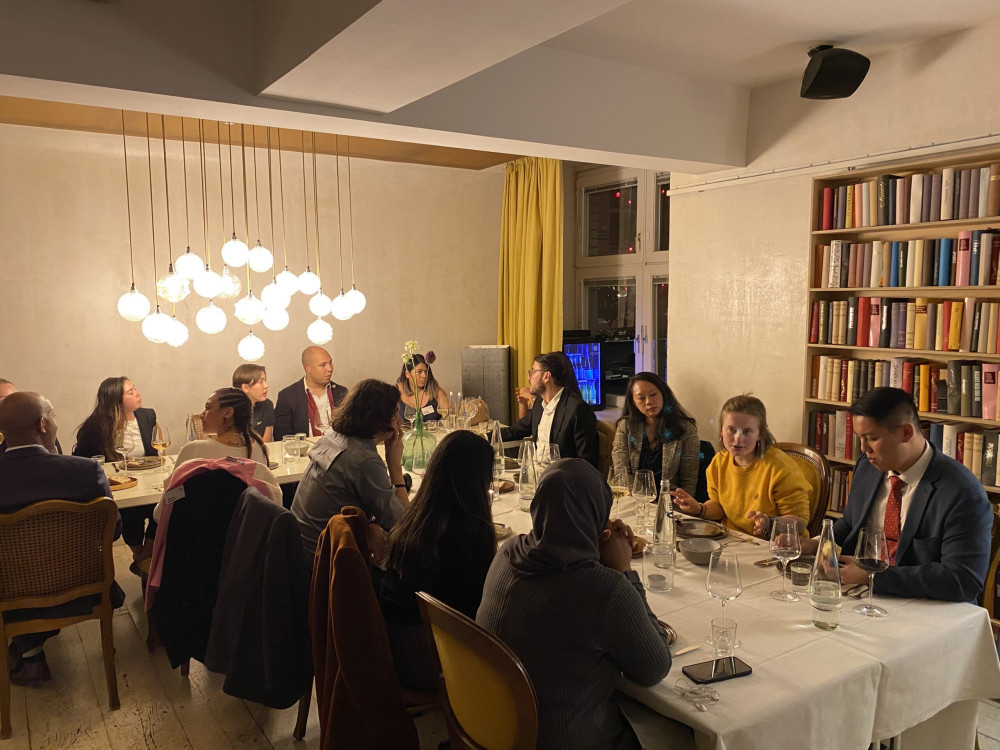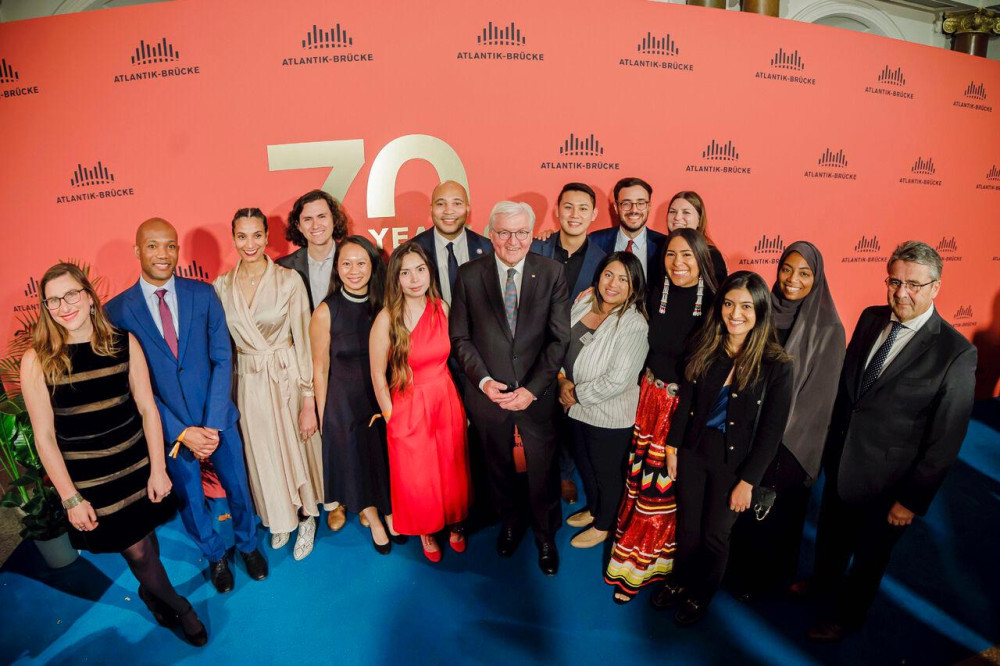“A live example of the value of diverse perspectives”
Bei der New Bridge-Reise im Oktober 2022 stand für die Fellows eine Vielzahl von Treffen mit Entscheidungsträgern und Experten in den USA und Europa auf dem Programm. Drei der Fellows – Melissa Hellmann, Investigative Reporterin beim Center of Public Integrity, Omaima Afzaal, Account Director bei der Brunswick Group, und Cheyenne Kippenberger, Kommunikationskoordinatorin, Center for Native American Youth beim Aspen Institute – berichten hier über ihre Erfahrungen.
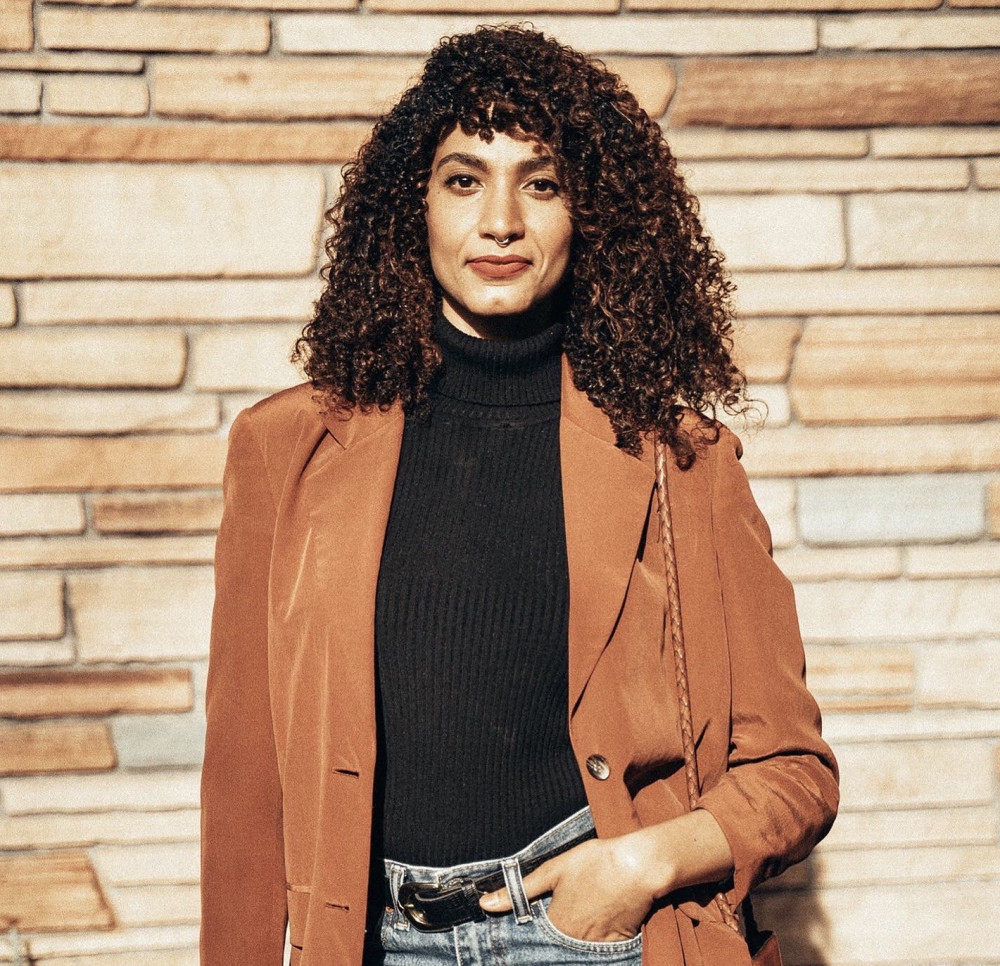 Melissa Hellmann: „We started our trip with a dinner reception at the home of Michael Werz in D.C., a Senior Fellow at the Center for American Progress. The group learned that, in Germany, diversity looks and is discussed very differently than in the U.S., where the discourse usually focuses on race and ethnicity.
Melissa Hellmann: „We started our trip with a dinner reception at the home of Michael Werz in D.C., a Senior Fellow at the Center for American Progress. The group learned that, in Germany, diversity looks and is discussed very differently than in the U.S., where the discourse usually focuses on race and ethnicity.
During a tour of DC’s ZDF Studio – a German public-service television broadcaster – it was surprising for us to discover that each German household must pay a monthly fee to fund public television and radio stations, instead of the broadcasting stations being funded through pledge drives and underwriting from foundations or businesses, like they are in the US.
During a tour of the Holocaust Museum, we were astonished to learn that the German population was less than 1% Jewish when Adolf Hitler was elected as chancellor in 1933. Some of the rhetoric and tactics used against Jewish people in Germany reminded me of those used to marginalize and murder Black, Indigenous, and people of color throughout U.S. history.
In Berlin, New Bridge fellow Malik Brown, the City of Atlanta’s Director of LGBTQ Affairs, taught us the vast differences between Germany and the U.S.’s political systems. A fact that stood out to many of us was that, while the U.S. has a two-party system, Germany has multiple parties. A single party has not won the majority vote in nearly 70 years, so several parties build coalitions that allow them to work together.
On one of our final days in Germany, we had a lively discussion on diversity and anti-discrimination in Germany and Europe with nonprofit xart splitta Director Juliana Kolberg during lunch. Due to its Nazi history, Germany doesn’t collect racial and ethnic census data. While data can help provide services to communities in the U.S., it is important to keep in mind that its collection and interpretation includes racial bias.
Germany’s labor bargaining system is more robust than the U.S.’s, the cohort learned at the Volkswagen Factory in Wolfsburg on our final full day from Vito Garippo, officer in the General Secretariat of the Global Works Council. It was remarkable to the cohort that, unlike in the U.S., Germany uses sectoral bargaining, which enables everyone in a sector to get union pay regardless of whether they’re in the union or not.
I’m taking back a newfound interest in EU-U.S. relations. My international interests have primarily revolved around Asia, but now I see the global ties in social inequities and solutions to these challenges. For myself, I was reminded of the power of narrative and to seek out more diverse storytelling around queerness. As a journalist, I was inspired to further collaborate with other communities so they can tell their own stories instead of using my platform to highlight their voices.“
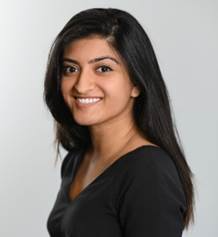 Omaima Afzaal: „Through this program, I gained invaluable insights about the political and economic systems of the EU and Germany, and also of the deep-rooted, complex histories that have informed those structures. After speaking with high-level EU and German policymakers, journalists, and thought leaders, I leave the program with a greater understanding of the issues shaping people’s lifestyles, cultures, and concerns in the region, from the energy crisis to climate change. As someone who advises multinational companies as they communicate pressing global issues to their stakeholders, I look forward to utilizing my newfound familiarity and longstanding interest in US-EU relations to provide valuable insights to my clients.
Omaima Afzaal: „Through this program, I gained invaluable insights about the political and economic systems of the EU and Germany, and also of the deep-rooted, complex histories that have informed those structures. After speaking with high-level EU and German policymakers, journalists, and thought leaders, I leave the program with a greater understanding of the issues shaping people’s lifestyles, cultures, and concerns in the region, from the energy crisis to climate change. As someone who advises multinational companies as they communicate pressing global issues to their stakeholders, I look forward to utilizing my newfound familiarity and longstanding interest in US-EU relations to provide valuable insights to my clients.
Transatlantic relations matter because our regions have a vast trove of experiences, histories, and cultures through which we can learn from each other. Now more than ever, the world is faced with significant global challenges, from climate change to inequality and pandemics which supersede borders and affect us all. To stand a chance at resolving these issues, diplomacy and international collaboration is key. The US and Europe have a unique, historic relationship, and it’s critical to maintain that partnership.“
The demographic and cultural landscape of the US and Europe are changing, with new generations from diverse backgrounds redefining and adding on to what it means to be a part of Europe and the United States. As our countries evolve, the transatlantic relationship must evolve, too. To ensure that it continues to grow stronger and remain relevant, it is crucial to represent diverse voices in key discussions and negotiations. This helps bring important, and often overlooked, perspectives from marginalized communities to the forefront.
Over the course of our program, our cohort served as a live example of the value of diverse perspectives. We had the privilege of speaking with German politicians, taking an inside look at how the government operates, and learning about the issues at the top of German voters’ minds, namely the Russia-Ukraine war and the resulting energy crisis. In turn, our group asked challenging, critical questions about migration, healthcare access, and what it means to be German in an ever-evolving social and political environment. By delving into sensitive issues that were close to us, the hope is our cohort was able to set a baseline for leaders to continue to think more deeply about these matters, and the real people and communities they impact.“
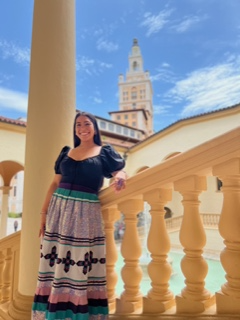
Cheyenne Kippenberger: „I am happy to come back with an expanded perspective of transatlantic relations, nation-to-nation relationship-building, policy-strategizing, immigration and asylum, climate change, global energy transitions, diversity, identity, nationalism, and even culture. I am so grateful to Atlantik-Brücke and the New Bridge Program for the opportunity to share my experiences as a Latina and an Indigenous woman but to also be exposed to so many different backgrounds, viewpoints, histories, and cultural differences in Belgium and Germany. I bring back a new lens of my own. I intend to continue tackling the issues important to me and my community. With me, I carry a newfound understanding of relations and community.
Balance is crucial to the order of all living things and a collective future. I now see that there is also a balance to transatlantic relations that is crucial to society’s collective future and the order of global interactions. These relations serve important purposes including creating policies and strategies for education, healthcare, energy, climate change, environmental protection, immigration, and even political conflict. Within this collective future, there needs to be space for diverse perspectives and experiences to not only be heard but respected and valued. A path of progression and inclusivity is one still being paved. Each paver represents different communities, different perspectives, and leading to a better world.
To empower young people is to build a stronger, collective future. My hope is that the New Bridge Program will continue to provide spaces and opportunities for diverse perspectives to be shared and heard but also celebrated. I believe in the contribution this program provides to the collective success of the globe by centering the importance of transatlantic relations and its connection to us all.“
Das Projekt wurde durch das Transatlantik-Programm der Bundesrepublik Deutschland aus Mitteln des European Recovery Program (ERP) des Bundesministeriums für Wirtschaft und Klimaschutz (BMWK) gefördert.

